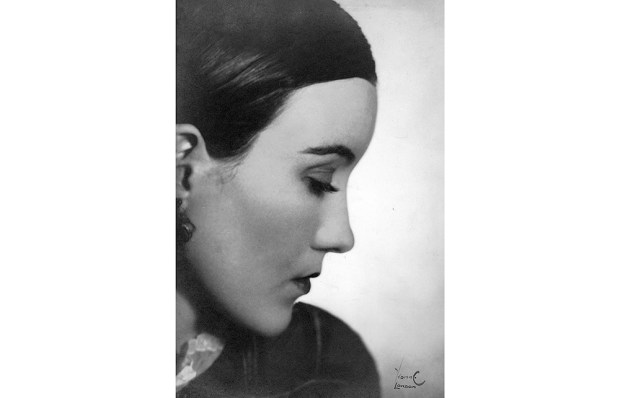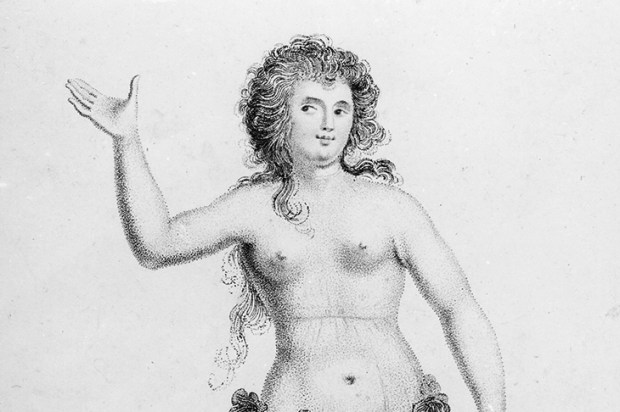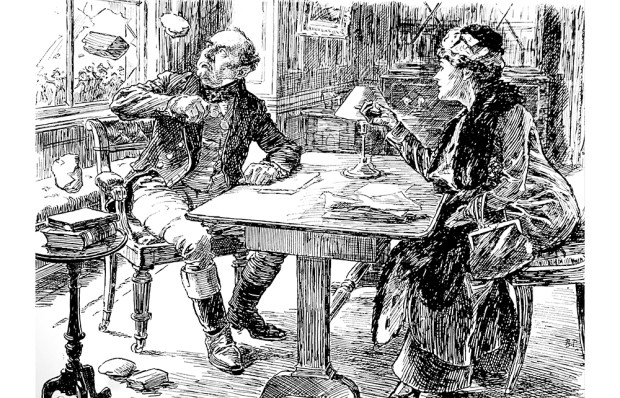‘One of the nicest things about being a writer,’ Shirley Jackson once noted in a lecture titled ‘How I Write’, ‘is that nothing ever gets wasted. It’s a little like the frugal housewife who carefully tucks away all the odds and ends of string beans and cold bacon and serves them up magnificently in a fancy casserole dish.’
In Raising Demons, newly reissued as a Penguin Classic, Jackson, perhaps best known for her definitively macabre — and, on its publication in the New Yorker, riotously controversial — 1948 short story ‘The Lottery’ and for her 1959 novel The Haunting of Hill House, most recently wrenched (‘adapted’ would scarcely be the right word) into a Netflix mini-series, gathers up the odds and ends of her young family’s life and serves them up as a genial series of comic sketches, taking in the mundanities of moving house, attending on the fly to surprise guests and laboriously planning for visitors who ultimately do not deign to arrive, putting up a Christmas tree, and, throughout, attempting to corral her four rambunctious (and beautifully individualised) children — Laurie, Jannie, Sally and baby Barry, known for a time as Beekman — and laissez-faire husband, not named here but known to those who know Jackson’s life as Stanley Edgar Hyman, literary critic and, during the run of this book, teacher at Bennington College in Vermont. Plus, to be sure, the assorted dogs and cats so necessary to this homely genre.
Raising Demons, first published in 1957, is, like its predecessor volume, Life Among the Savages (1953), neatly cobbled together from the stories Jackson had published — and with which she had largely supported her family — in the women’s magazines of her era, including Good Housekeeping, Mademoiselle and Redbook, and it is a pleasingly aimless, essentially plotless book — ‘soft’, as a writer of my acquaintance once described a short story of his he especially doted on in which, basically, nothing happened. Here, Jackson is in no particular hurry to get nowhere at all, and readers either will or will not revel in the likes of:
We hung out a flag on Decoration Day, observed the Fourth of July with noisy cheer, paid our taxes with reluctance but on time, sent children to school with an eye to the truant officer, crossed the street with the green light, did not use the mails to defraud — we were sensible citizenly folk, but not obtrusive.
(I, for the record, dote on this sort of thing. It’s like taking a holiday without leaving the house — which, these days, is virtually one’s only option anyway, isn’t it?)
If Raising Demons were simply the sort of situation comedy, however avant la lettre, we have known all our lives from endless television reiterations — mildly cynical wife, blusteringly avoidant, largely feckless husband, wisecracking offspring, each possessed of sufficient tics and harmless childhood obsessions so that you can tell them apart — it would scarcely be worth its 320 pages. But Jackson is too good a writer to simply haul out the clichés of suburban domesticity, even if, as a writer, she was quite possibly originating some of them as she went along.
In her self-portraiture we’re allowed glimpses of her weariness, frustration and mostly suppressed anger. (Conspicuously missing from the self-portrait: Jackson’s existence as a writer. We’re allowed to see her as wife, housewife and mother; she does not, as in those paintings in which we observe the artist gazing into a mirror even as the painting is being painted, let us know that in between cooking and changing the beds she’s taking scrupulous notes.) And though she clearly loves her children and even her flamboyantly unhelpful husband (ah yes: if you want to know more about Stanley’s infidelities and Shirley’s increasing agoraphobia and substance abuse, you’ll have to read elsewhere, perhaps in Ruth Franklin’s superb, definitive biography Shirley Jackson: A Rather Haunted Life) too much to lampoon them except ever so gently, she’s not shy about astringently chronicling her barely concealed distaste for her neighbours (scheming cheats) and the town tradesmen (shiftless cheats).
Indeed, if you’ve already encountered Jackson’s story ‘The Renegade’, in which the city-bred Mrs Walpole, newly moved to the country, is offered increasingly vicious advice by the locals about her chicken-killing dog, you’ll recognise that me-vs-all-of-them unease, however many notches it’s been turned down. If you know the harrowingly nightmarish ‘The Tooth’, you may, as I did, stiffen and cringe as Jackson announces: ‘If I went to New York I could go to the dentist, because the dentist who put that gold inlay in in the first place is in New York.’ Happily, here the trip to New York does not lead to delusion and annihilation of identity but, mostly, shopping, sightseeing and a chaotic trip to an automat. Oh, and, as it happens, no visit to the dentist, because Jackson forgets all about it.
Nothing gets wasted. ‘Once,’ Jackson goes on to say in ‘How I Write’, ‘when I had spent all one rainy day wrestling with my old refrigerator, whose doors tended to jam shut, my younger daughter asked why I didn’t open it by magic.’ The further adventures of the recalcitrant refrigerator, as told in Raising Demons, are a slapstick catastrophe worthy of Buster Keaton. In real life, Jackson confesses: ‘It was a lot pleasanter to abandon the refrigerator and sit down and write a story about opening it by magic… The story, by the way, paid for a new refrigerator.’
Got something to add? Join the discussion and comment below.
Get 10 issues for just $10
Subscribe to The Spectator Australia today for the next 10 magazine issues, plus full online access, for just $10.
You might disagree with half of it, but you’ll enjoy reading all of it. Try your first month for free, then just $2 a week for the remainder of your first year.














Comments
Don't miss out
Join the conversation with other Spectator Australia readers. Subscribe to leave a comment.
SUBSCRIBEAlready a subscriber? Log in